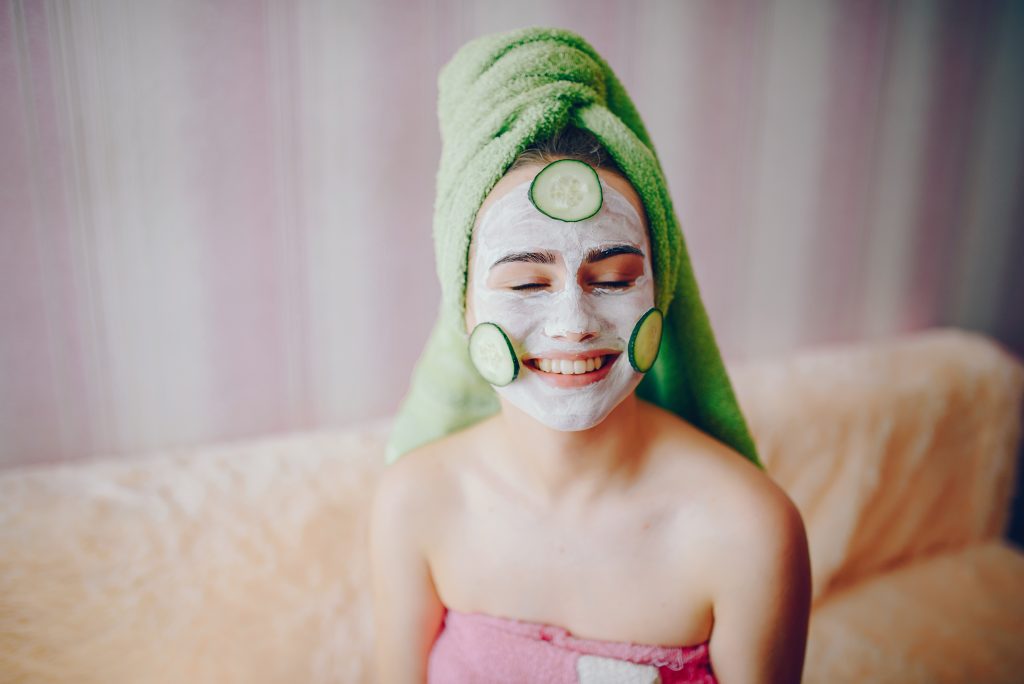Table of Contents
ToggleWhat Is Face Mask?
Face masks are crucial components of any skincare regimen. They provide targeted treatment and deliver deep nourishment to the skin. Whether you have dry, oily, combination, sensitive, or normal skin, there’s a face mask that’s perfect for you.
In this post, we’ll delve into ten essential face masks suitable for all skin types, guiding you towards achieving a radiant complexion.
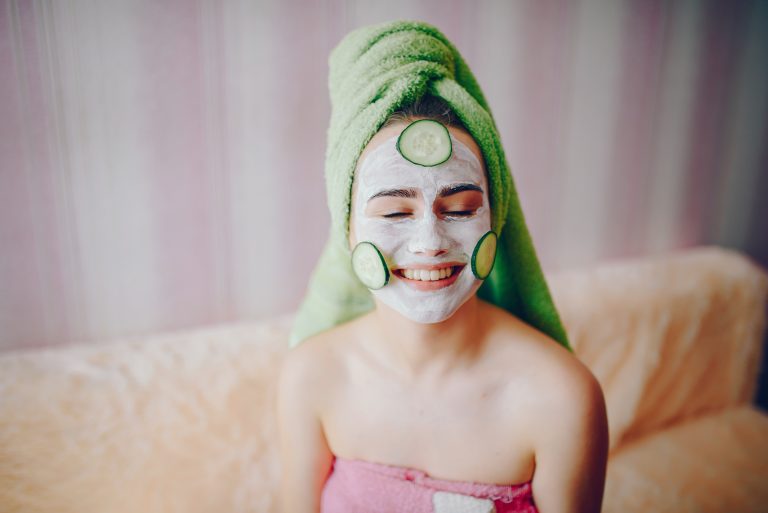
What Importance of Face Masks in Skincare?
Face masks are more than just a luxurious treat; they’re a key component of effective skincare. These products are designed to deliver concentrated ingredients to the skin, addressing specific concerns like hydration, oil control, and brightness.
Regular use of face masks can enhance your overall skincare routine, offering benefits that standard cleansers and moisturizers may not provide.
By incorporating the right face masks into your regimen, you can target and treat your unique skin needs, leading to healthier and more radiant skin.
How Identifying Your Skin Type?
Understanding your skin type is crucial for selecting the right face masks.
Here’s a quick guide to help you identify your skin type:
Dry Skin
Dry skin frequently feels tight and can have a rough texture. It’s prone to flakiness and can be sensitive to changes in the weather. Hydrating and nourishing face masks are ideal for this skin type, as they can replenish moisture and soothe dryness.
Oily Skin
Oily skin tends to produce excess sebum, leading to a shiny complexion and frequent breakouts. Clarifying and purifying face masks can help control oil production and prevent acne.
Combination Skin
Combination skin features both oily and dry areas, typically with an oily T-zone and dry cheeks. Balancing face masks are the best choice, as they can address the needs of both skin types.
Sensitive Skin
Sensitive skin is easily irritated and may react to certain ingredients. Soothing and calming face masks are essential for reducing redness and irritation without causing further sensitivity.
Normal Skin
Normal skin is balanced, without being overly oily or dry. Nourishing face masks can maintain this balance and enhance the skin’s natural glow.
Best Face Masks for Each Skin Type
Hydrating Masks for Dry Skin
For those with dry skin, hydration is key. Hydrating masks, often infused with ingredients like hyaluronic acid, aloe vera, and glycerin, can deeply moisturize and replenish the skin.
These face masks help restore the skin’s moisture barrier, leaving it soft and supple. Look for masks that are creamy or gel-based, as they tend to provide the most hydration.
Clarifying Masks for Oily Skin
Oily skin benefits from clarifying face masks that can absorb excess oil and purify pores. Ingredients like clay, charcoal, and salicylic acid are effective in controlling oil production and preventing breakouts.
These face masks draw out impurities and leave the skin feeling refreshed and balanced. Using these masks regularly can help keep your skin clear and matte.
Balancing Masks for Combination Skin
Combination skin requires masks that can address both oily and dry areas. Balancing masks, which often contain ingredients like green tea, honey, and kaolin clay, can hydrate and detoxify simultaneously.
These masks ensure that the skin is nourished without becoming too oily or dry. They help maintain an even complexion by providing targeted care to different areas of the face.
Soothing Masks for Sensitive Skin
Sensitive skin needs gentle and calming masks that can reduce redness and irritation. Look for masks with ingredients like chamomile, oatmeal, and cucumber, which are known for their soothing properties.
These masks help to calm the skin and reduce inflammation. Avoid masks with strong fragrances or harsh chemicals that could trigger sensitivity.
Nourishing Masks for Normal Skin
Normal skin can benefit from masks that provide a boost of nourishment to maintain its healthy balance. Ingredients like vitamins C and E, antioxidants, and botanical extracts can enhance the skin’s natural glow.
These masks help to keep the skin looking vibrant and youthful. Using these masks regularly can support overall skin health and prevent future issues.
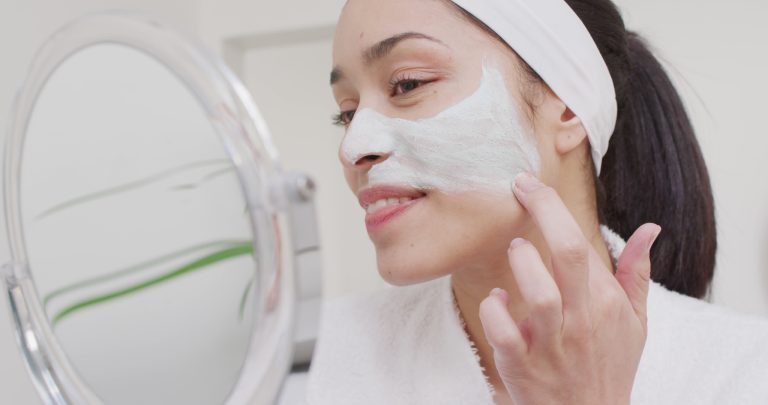
What DIY Face Masks for Different Skin Types?
Creating your own face masks at home can be both fun and effective. Here are some simple DIY recipes tailored to different skin types:
- For Dry Skin:
Combine 2 tablespoons of honey with 1 tablespoon of yogurt. Apply to the face and leave on for 15-20 minutes. Rinse with warm water.
- For Oily Skin:
Combine 2 tablespoons of bentonite clay with water to form a paste. Spread the mixture onto your face and leave it to dry for 10-15 minutes. Afterwards, rinse it off with warm water.
- For Combination Skin:
Blend 1 tablespoon of honey with 1 tablespoon of mashed avocado. Apply to the face and leave on for 15 minutes. Rinse with warm water.
- For Sensitive Skin:
Mix 1 tablespoon of oatmeal with 2 tablespoons of chamomile tea. Apply to the face and leave on for 10-15 minutes. Rinse with warm water.
- For Normal Skin:
Combine 1 tablespoon of mashed banana with 1 tablespoon of honey. Apply to the face and leave on for 15-20 minutes. Rinse with warm water.
How to Use Face Masks Effectively?
To get the most out of your face masks, follow these tips:
- Cleanse First: Always start with a clean face to ensure that the mask can penetrate deeply.
- Apply Evenly: Use a brush or your fingers to apply the mask evenly across your face, avoiding the eye area.
- Follow Instructions: Pay attention to the recommended time on the mask’s packaging. Leaving the mask on for an extended period can result in irritation.
Moisturize After: After rinsing off the mask, follow up with a moisturizer to lock in the benefits.
Finding the right face mask for your skin type can make a significant difference in your skincare routine. Whether you opt for store-bought products or DIY recipes, these masks can help you achieve a glowing complexion.
Remember to use them regularly and follow the tips for effective application. Your skin will thank you!
Unlock Radiant Skin
In the world of skincare, face masks have earned their place as a beloved staple. These beauty treatments offer targeted solutions for various skin concerns, providing a much-needed boost to your regular routine. But with countless options available, This guide will cover everything you need to know to achieve radiant skin.
1. Face Masks for Dry Skin With Radiant Glow
For dry skin, hydration is the key. Look for masks containing ingredients like hyaluronic acid, glycerin, aloe vera, and honey.
These ingredients help to lock in moisture and soothe dryness.
- Hydrating Sheet Masks
Sheet masks drenched in hydrating serums can provide an instant moisture boost. They are convenient and effective, making them a great option for a quick skin pick-me-up.
- Cream Masks
Cream masks are thicker and provide intense hydration. They are perfect for a more indulgent treatment, especially during colder months when the skin tends to be drier.
DIY Hydrating Mask Recipe
For a simple at-home solution, mix two tablespoons of honey with one tablespoon of yogurt. Smoothly apply a uniform layer onto your face, letting it rest for 15 to 20 minutes before rinsing off with warm water.
This blend deeply hydrates and nourishes dry skin, leaving it feeling replenished and revitalized.
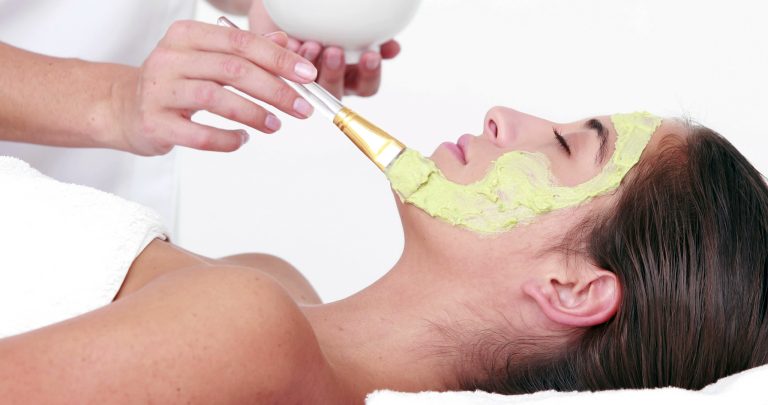
2. Face Masks for Oily Skin with Radiant glow
Oily skin benefits from clarifying masks that help control sebum production and prevent acne. Ingredients like clay, charcoal, and salicylic acid are particularly effective.
- Clay Masks
Clay masks, such as those containing bentonite or kaolin, absorb excess oil and draw out impurities from the pores. They help to keep the skin matte and reduce the occurrence of breakouts.
- Charcoal Masks
Charcoal masks work similarly to clay masks, but they also have detoxifying properties. They pull out toxins and impurities, leaving the skin feeling fresh and clean.
DIY Clarifying Mask Recipe
Combine two tablespoons of bentonite clay with water to form a paste. Apply it to your face, let it dry for 0-15 minutes, then rinse off. This mask helps to control oil and prevent breakouts.
3. Face Masks for Combination Skin with glow
Combination skin requires balancing masks that address both oily and dry areas. Look for masks that hydrate while also controlling oil.
- Gel Masks
Gel masks are lightweight and hydrating without being too heavy. They provide moisture to dry areas and have a cooling effect that can help to calm oily zones.
- Multi-Masking
Multi-masking involves using different masks on different parts of your face. For instance, you might opt for a hydrating mask on your cheeks and a clarifying one on your T-zone to address specific skincare needs.
This technique ensures that each area of your face gets the specific care it needs.
DIY Balancing Mask Recipe
Mix one tablespoon of honey with one tablespoon of mashed avocado. Delicately apply the mixture onto your face, ensuring thorough coverage across all areas. Next, take a moment to unwind for approximately 15 minutes as the mask begins its rejuvenating effects.
Then, make sure to rinse it off completely using warm water. This mask not only moisturizes your skin but also works to keep your complexion balanced and healthy.
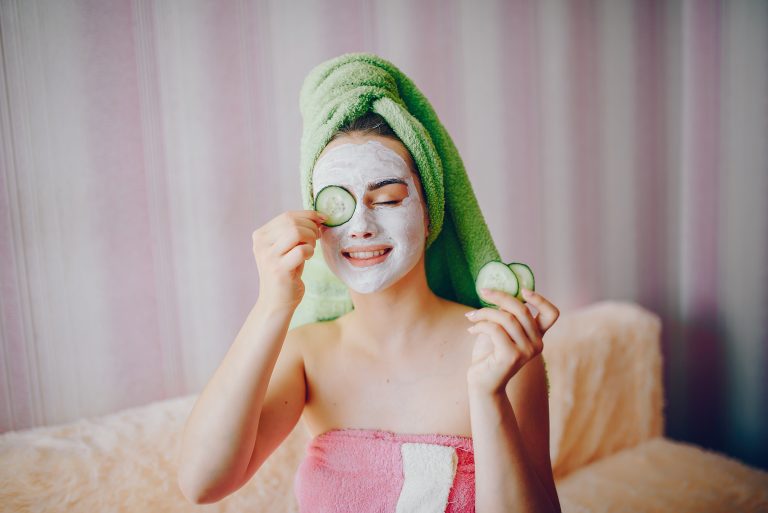
4. Face Masks for Sensitive Skin with Radiant Glow
Sensitive skin needs soothing masks that calm irritation and reduce redness. Look for masks with gentle ingredients like chamomile, oatmeal, and aloe vera.
- Soothing Cream Masks
Cream masks with calming ingredients can help reduce inflammation and soothe sensitive skin. They usually have fewer irritants and are fragrance-free.
- Oatmeal Masks
Oatmeal is renowned for its natural calming properties, making it a gentle yet effective ingredient. Oatmeal masks can calm the skin and reduce irritation, making them ideal for sensitive skin types.
DIY Soothing Mask Recipe
Mix one tablespoon of oatmeal with two tablespoons of chamomile tea. Smoothly apply the mixture onto your face, ensuring even coverage, and let it settle for about 10 to 15 minutes. Afterward, rinse it off gently.
This mask is designed to soothe and calm irritated skin, leaving it feeling refreshed and revitalized.
5. Face Masks for Normal Skin with Radiant Glow
Normal skin is balanced but still benefits from nourishing masks that maintain its health and radiance. Ingredients like vitamins C and E, antioxidants, and botanical extracts are beneficial.
- Vitamin C Masks
Vitamin C masks can brighten the skin and reduce the appearance of dark spots. They enhance the skin’s natural glow and provide antioxidant protection.
- Antioxidant Masks
Masks containing antioxidants protect the skin from environmental damage and keep it looking youthful. They provide essential nourishment to the skin, enhancing overall skin health and vitality.
DIY Nourishing Mask Recipe
Combine one tablespoon of mashed banana with one tablespoon of honey. Apply to your face and leave on for 15-20 minutes before rinsing. This mask enhances your skin’s natural radiance, leaving it glowing and revitalized with enriched vitality
Choose Your Face Mask Carefully
When selecting a face mask, it’s essential to consider the following factors:
Ingredients: Choose masks with ingredients that match your skin type and address your concerns.
Brand Reputation: Opt for brands known for their quality and efficacy.
Reviews: Check customer reviews to see what others have experienced with the product.
Patch Test: Always perform a patch test before using a new mask to ensure you do not react to it.
Frequently Asked Questions About Face Masks
How often should I use a face mask?
The frequency depends on your skin type and the mask’s ingredients. It’s generally recommended to use a face mask 1 to 3 times a week.
Can I use multiple face masks?
Yes, using different masks for different skin concerns (multi-masking) can be effective.
It’s typically better to apply a face mask after a shower.
It’s best to apply a face mask after a shower when your pores are open and can better absorb the mask’s ingredients.
More about DIY face masks
Conclusion
Choosing the perfect face mask involves understanding your skin type and its needs. Whether you have dry, oily, combination, sensitive, or normal skin, there’s a mask out there for you. By integrating suitable face masks into your skincare regimen, you can attain a radiant complexion.
Remember to select masks with suitable ingredients, use them correctly, and enjoy the benefits of healthier, glowing skin. Your journey to radiant skin starts with the perfect face mask.

